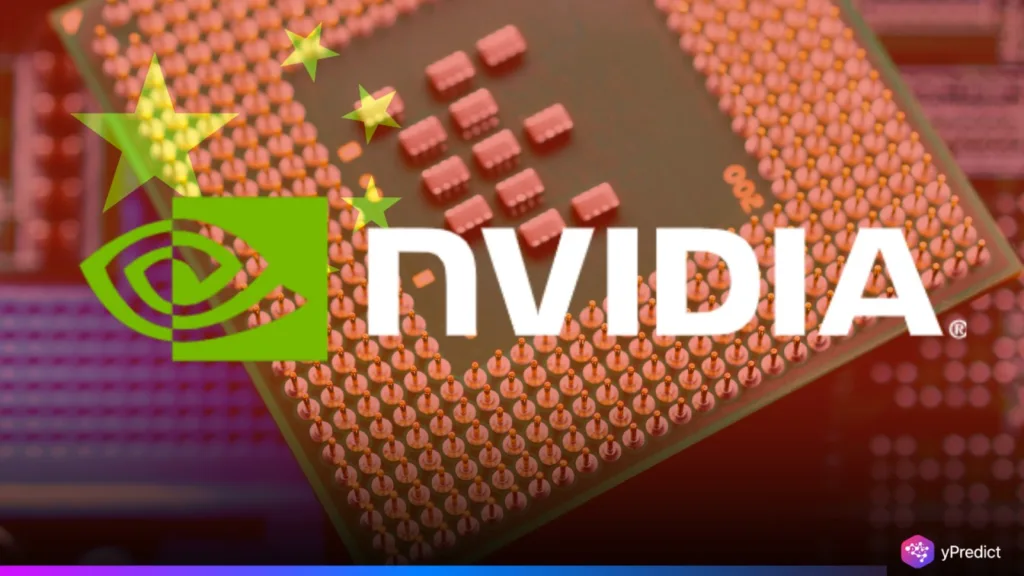
Nvidia is facing new challenges in China as its H20 Chips failed to gain momentum, as new U.S. export limits tighten. Chinese companies continue to push back on Nvidia’s attempts to pivot and offer a less powerful version of its AI processors. The situation underscores how quickly China is advancing its semiconductor capabilities and adds to concerns of how much of a presence Nvidia will have in potentially the world’s most important AI market.
Chinese Firms Shift Toward Domestic Alternatives
The reception of its H20 Chips from Nvidia shows a larger shift underway within China’s AI landscape. China’s major firms are now tapping into domestic suppliers such as Huawei, which, in part, has built a presence in its processor market. This is consistent with a 2023 report from the National Bureau of Economic Research, which showed that China is gaining traction toward self-sufficiency in semiconductors. To this point, their results clearly indicated that U.S. restrictions limiting advanced chips may have stimulated domestic innovation rather than restricted it.
For Nvidia, this rejection represents a double challenge; they not only miss out on immediate sales but, in addition, they risk loss of long-term market position to local competitors improving capabilities quickly.
Jensen Huang’s Visit Underscores Reliance on Taiwan
During these chaotic countries where we saw companies withdraw from China for geopolitical reasons, along comes Nvidia’s CEO Jensen Huang on a public relations tour to TSMC in Taipei, emphasizing the company’s dependence on Taiwanese chip manufacturing at a time of geopolitical tension, adding more fuel to the fire regarding reliance on Taiwan. A Reuters report dated August 22, 2025, reported that Nvidia has obtained approval from Washington on 300,000 H20 Chip orders to China, but shipments are delayed due to the security concerns of the shipments to Beijing.
In Nvidia’s case, the delay could also signal a potential overall decrease of revenues of 15% from the U.S., which serves as a reminder of how precarious Nvidia’s China engagement plans have become with U.S. export controls working against a coherent and sound deal for the company.
U.S. Policy Sparks Economic Tensions
The limitations imposed on Nvidia’s AI processors are part of a larger effort by the U.S. Department of Commerce to restrict the development of military-related AI in China. The export controls were designed to block access to advanced computing resources by the Chinese government, and were first introduced in 2022. However, they have been interpreted as generally reinforcing China’s view of the United States as an economic aggressor.
As Chinese commentary on the H20 Chips, “American slave masters offering pig guts” illustrates, there is a simmering anger in China. Analysts note that American subsidies have pushed Chinese firms to invest more aggressively in domestic semiconductor R&D in China. Rather than stymying AI growth related to the military, critics say the measures will actually spur such growth by generating greater independence from American suppliers.
Domestic Innovation Gains Momentum
Despite Nvidia’s global dominance, the challenges in China point to a shifting balance. As H20 Chips face sluggish demand, local alternatives are building momentum. Huawei’s Ascend processors and other domestic solutions now represent more than just temporary substitutes; they are becoming competitive players in their own right.
The change underscores the unforeseen effect of U.S. export restrictions. Rather than deterring China from accessing important AI hardware, it seems the new measures led to another stage of China’s growth in semiconductors. That momentum could very well define the next ten years of global AI competition, with China now firmly positioned as a legitimate competitor to established Western companies.
Conclusion
Nvidia’s difficulties selling H20 Chips in China reflect the larger clash between technology, policy, and national security. With Huawei and other domestic leaders gaining strength, the era of China’s dependence on foreign processors is fading. For Nvidia, the stakes are enormous: its future role in China hinges on navigating political headwinds while competing against an increasingly capable Chinese semiconductor industry.






